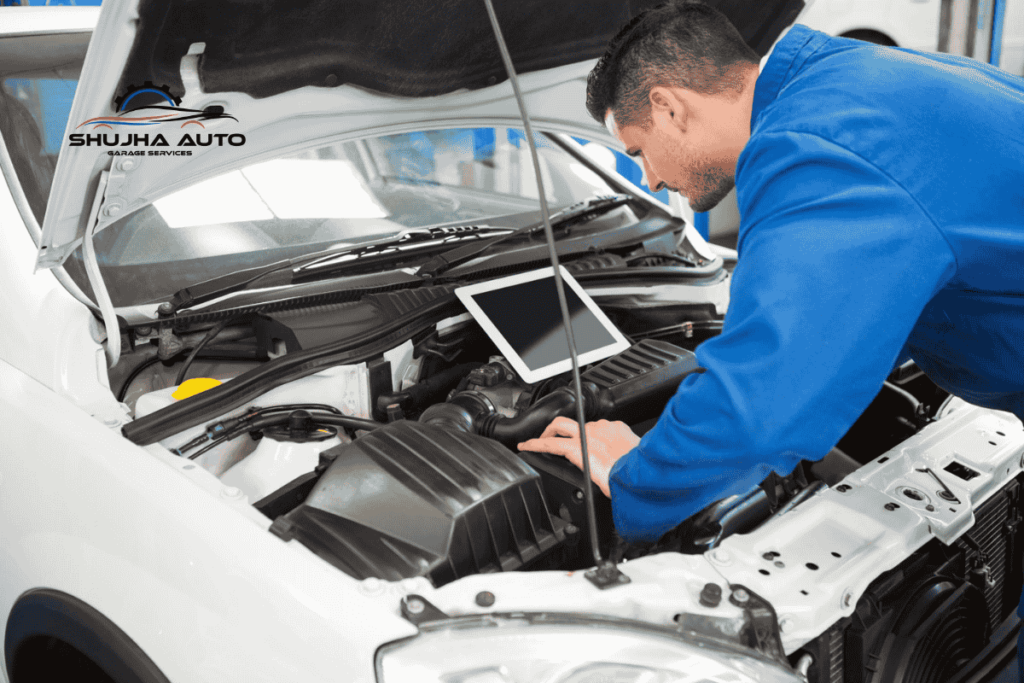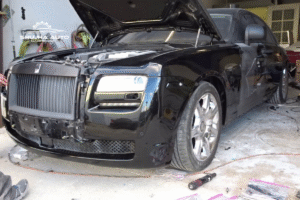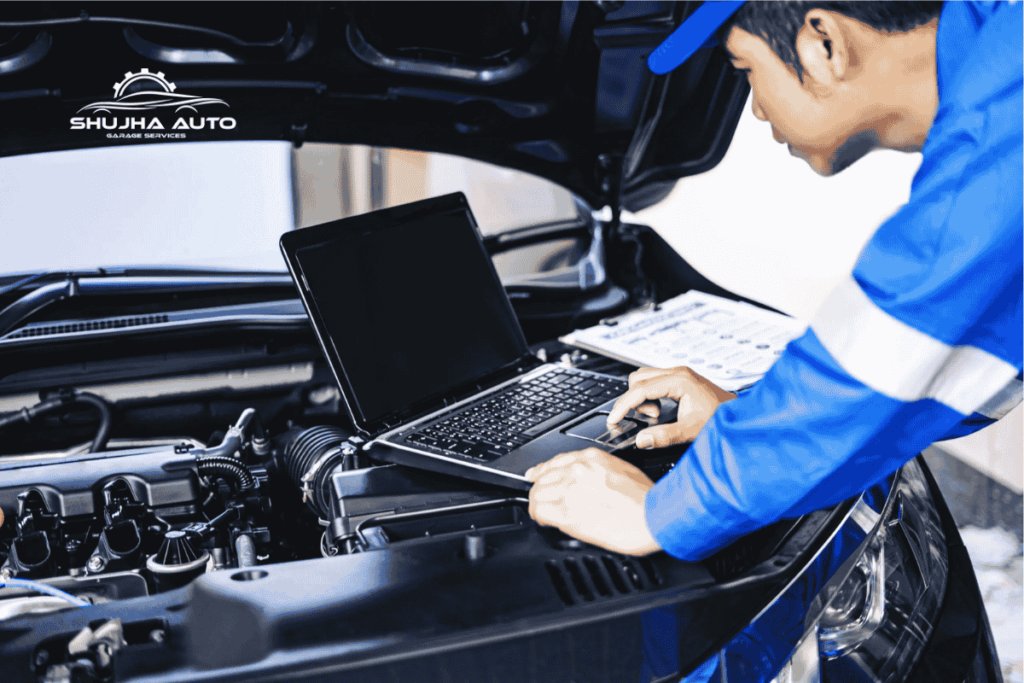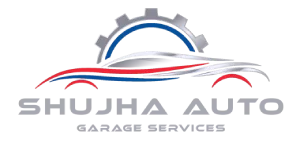It is important to know if a car computer check can find all engine problems. In today’s cars, onboard diagnostics are key. They help drivers and mechanics check how well the engine is working.
These systems give important clues about possible issues and show why it’s crucial to check your car’s health often. Regular scans can prevent small problems from getting bigger, keeping your car running well.
Key Takeaways
- A car computer check provides crucial insights into engine performance.
- Onboard diagnostics are vital for effective vehicle diagnostics.
- Regular vehicle health checks can preempt serious engine problems.
- Understanding engine issues helps in timely maintenance.
- Car computer checks are essential for both drivers and mechanics.
Understanding the Basics of Car Computers
Car computers have changed how we care for our vehicles. At the heart of this change is the engine control unit. It manages engine performance and efficiency using complex algorithms and real-time data.
Learning about automotive technology means understanding the parts of car computers. These parts work together for vehicle diagnostics, helping to find problems quickly. This technology also improves engine monitoring and emissions control.
Car computers need to communicate well with other vehicle systems. This ensures drivers get the correct information about their car’s health. Knowing how car computers work helps us appreciate their role in keeping our vehicles running smoothly.
How Car Computers Communicate with Vehicle Components
Knowing how car computers talk to different parts of a vehicle is key. The car’s brain, or electronic control unit (ECU), sends and receives messages from other parts. This is thanks to advanced data systems that ensure everything works well together.
Two main ways these messages are sent are through CAN and LIN networks. CAN is used in most cars today, letting many parts share one channel. LIN is for simpler parts and is cheaper to use.
Thanks to these systems, cars can share information in real-time. For instance, they can tell you about the engine, how much fuel you’re using, and even safety features. This helps spot problems early, making cars safer and more reliable.
Knowing how it works is more important for car care as car tech gets better. Staying up-to-date with data and diagnostic systems helps you make better choices for your vehicle.
The Role of OBD-II in Diagnostic Processes
The Onboard Diagnostics II (OBD-II) system is key for checking your vehicle’s health. It helps keep your car in line with emission rules. This is good for the environment and keeps your vehicle running well.
Your car can send out trouble codes through OBD-II. These codes help mechanics find and fix problems quickly. They cover essential parts like the engine, transmission, and emissions systems.
Using OBD-II, you can see how your vehicle is doing. Regular checks can stop minor problems from getting more significant. Understanding these codes helps you take better care of your car.
Location: Please Visit Our Shujha Auto Garage
Types of Engine Problems Detected by Car Computer Checks
Car computer checks are key for spotting engine problems. They can find minor or significant faults that harm your car’s performance. Your car’s computer will show diagnostic trouble codes when it finds problems. These codes help you know what needs fixing.
- Oxygen sensor failures that cut down fuel efficiency
- Mass airflow sensor problems that mess with engine power
- Throttle position sensor issues that cause uneven acceleration
Engine misfires are often caused by bad spark plugs or ignition coils. Understanding these diagnostic trouble codes is key to fixing your car correctly. Fixing these problems quickly prevents further damage and keeps your engine running well.
Limitations of a Car Computer Check
A car computer check gives you essential information about your vehicle’s health. It finds issues that cause fault codes and helps with repairs. However, these checks have some significant limits.
One key thing is that these checks can’t find every problem. Many hidden issues don’t show up as error codes. For example, mechanical failures or bad fuel quality might not be caught.
It’s essential to do more than just a simple check. You need to test your car thoroughly. Regular checks help keep your vehicle running well and catch problems early.
How to Conduct a Vehicle Health Check
A thorough vehicle health check is key to keeping your car running well. Begin with a simple maintenance checklist. This includes checking fluid levels, brakes, tires, and the battery. Regular checks help spot problems early.
First, check the engine oil, coolant, brake fluid, and transmission fluid levels. Each is vital for your car’s performance. Then, look at the brake pads and rotors for wear. This ensures you can stop safely.
Also, check the tire pressure and tread depth. This keeps your car stable on the road. Lastly, the battery must be inspected for corrosion and charge level. This step helps avoid sudden breakdowns.
After these checks, use an OBD-II scanner for car diagnostics. It shows any trouble codes that might indicate a problem, helping you fix issues before they get worse.
Regular preventive care through these checks can make your car last longer. This approach saves you money on repairs and keeps your vehicle reliable for years.
Using an OBD-II Scanner: A Step-by-Step Guide
Using an OBD-II scanner is key to fixing car problems. Start by picking the right scanner for your car’s make and model. Many types, from simple to advanced tools, analyze data.
After getting your scanner, plug it into the OBD-II port under the dashboard. Turn the car’s ignition on, but don’t start the engine. Most scanners will show a welcome message, meaning they’re connected.
Next, start the diagnostic by following your scanner’s instructions. Choose ‘Read Codes’ to retrieve trouble codes from the car’s memory. These codes help determine what’s wrong with your engine.
After getting the codes, use the scanner to examine more details. Some tools give descriptions and fixes for the codes, which is super helpful for knowing what repairs you need.
Note any codes you find and check the scanner’s manual or online for what they mean. By following these steps, you can keep your car in good shape and know exactly what repairs are needed.
Benefits of Regular Engine Scans
Regular engine scans are key to keeping your vehicle in top shape. They help spot problems early, which saves you money on repairs. This is a smart way to prevent significant issues from happening.
These scans also boost your car’s performance. They fix minor problems before they get big, making your vehicle run better and cleaner. A well-kept engine means your car goes faster and lasts longer.
Scans also give you essential info about your engine. This info helps you decide what repairs or maintenance you need. It’s a smart way to keep your car running smoothly and reliably.
Professional vs. DIY Car Computer Checks
Choosing between professional diagnostics and DIY car checks affects your car’s maintenance. Each method has its benefits, which is key for car owners.
Professional diagnostics are known for their accuracy. Experts use top-notch equipment to read your car’s computer data. They often find issues that simple scanners miss. Plus, they know how to fix problems correctly.
DIY car checks are more cost-effective. For a few dollars, you can buy an OBD-II scanner, which lets you check your car regularly. However, you need some mechanical knowledge to get reliable results.
It’s essential to consider the pros and cons of each method. If you’re not sure about a problem, get a pro. But with the right tools and information, you can handle routine checks yourself.
Advanced Engine Diagnostics with ECU Scans
ECU scans are key for advanced diagnostics in today’s cars. They give a detailed look at engine management systems, showing how electronic controls affect a car’s performance.
With ECU scans, you can check many parameters. This helps you make smart choices for performance tuning. Tuning your engine makes your car more agile and saves fuel.
ECU scans also spot problems early on. Keeping your car’s software up to date helps it use the latest engine management tech.
These advanced diagnostic methods in your car care routine boost your vehicle’s life and performance.
How to Find Hidden Errors in Your Vehicle
Finding hidden errors in your vehicle is key to keeping it running well. Standard checks might miss these issues, leading to big problems later. Knowing what these checks often miss helps you stay ahead.
To find hidden errors, use these diagnostic strategies:
- Visual Inspections: Regularly inspect your vehicle’s exterior and interior. This can reveal problems that electronic checks miss.
- Listening for Unusual Sounds: When it’s running, listen for clicks, clunks, or hissing. These sounds can mean there’s a hidden mechanical issue.
- Fluid Checks: Look at the levels and colors of different fluids. If they’re off-color or dirty, it could mean a bigger problem.
- Temperature Monitoring: Watch the engine temperature closely. It could be a sign of a problem if it gets too high.
These methods and staying alert to your vehicle’s performance can help you find hidden problems. Your efforts will make your vehicle more reliable and last longer.

Vehicle System Analysis: Beyond Just the Engine
Vehicle system analysis is more than just checking the engine. It involves looking at electronic systems, braking systems, and more. Regular checks help find problems early, preventing more significant issues later.
Checking electronic systems is key. They affect how well and safely your vehicle runs. Without this, you might face unexpected problems or safety risks. A complete check ensures your vehicle is in top shape, giving you confidence and reliability.
Adding a complete vehicle system analysis to your maintenance routine is smart. It’s a way to stay safe and efficient. By being proactive, you’ll enjoy smoother rides and a longer-lasting vehicle.
The Importance of Regular Maintenance for Engine Health
Regular maintenance is key to keeping your engine in top shape. It includes routine checks and services that keep your car running well. By doing these checks, you can spot problems early and avoid more significant issues later.
Engines are complex and need regular care to work properly. This care includes oil changes, air filter swaps, and coolant checks, which help your engine last longer and perform better.
Ignoring these critical services can harm your engine’s performance and cost more to fix later. Regular maintenance keeps your car running smoothly and saves you money. Taking good care of your engine today means a healthier car tomorrow.
Using Diagnostics to Boost Resale Value
When you sell your car, showing its health can really help its value. Buyers want to know they’re getting a good deal. Giving them diagnostic reports shows your vehicle is well-kept.
Diagnostic reports tell the story of your car’s past. They show any problems and how they were fixed. This makes your vehicle more attractive to buyers and can raise its price.
Keep a detailed record of your car’s diagnostics. This will show that it has been well-maintained and reliable, which can make it more valuable when you sell it.
Using diagnostic reports can make your car stand out. Buyers are willing to pay more for well-cared-for cars, so make sure your car’s history is clear and detailed to get the best price.
Choosing the Right Auto Garage for Diagnostics
Finding the right auto garage for your car’s health is key. First, look at the technicians’ qualifications. They should be well-trained and experienced to offer top-notch service.
Customer reviews are also critical. They give you a peek into what to expect. Look for patterns that show the garage is reliable and trustworthy.
Check the services the garage offers. A good garage can handle many Professional diagnostics. This means your car gets the best care, avoiding future issues.
Carefully considering these points can help you find a garage that fits your needs. Your car’s performance depends on it, and so does your research. Choose wisely for the best results.
Conclusion
A detailed car computer check summary offers key insights for keeping your vehicle in shape. A diagnostic system like the OBD-II helps spot engine problems early, preventing more significant issues and keeping your car running smoothly.
Regular maintenance is crucial for better fuel efficiency and a longer vehicle life. With the right maintenance tips, you can make smart choices, leading to safer and more enjoyable driving. Regular checks keep your vehicle and your mind at ease, giving you control over your driving experience.
FAQ
Can a car computer check to detect all engine problems?
Car computer checks are very good at finding many engine problems. But they might miss some issues that don’t appear as fault codes. It’s essential to do regular checks on your vehicle to catch everything.
What is the function of the Engine Control Unit (ECU)?
The Engine Control Unit (ECU) controls how well your engine works. It uses data from sensors to adjust settings for better performance. An ECU scan can show you how well your engine is doing and find hidden problems.
How do car computers communicate with vehicle components?
Car computers communicate with different parts of your vehicle using special networks like CAN and LIN, which help everything work together smoothly.
What is OBD-II, and why is it important?
OBD-II stands for Onboard Diagnostics II. This system checks how well your vehicle is running and whether it meets emissions standards. It also gives trouble codes that help you find and fix problems.
What types of engine problems can be detected by car computer checks?
Car computer checks can find many engine problems, including issues with oxygen sensors, fuel efficiency, and engine misfires. Knowing about standard fault codes helps you fix problems and know when to get help from a pro.
What are the limitations of a car computer check?
Car computer checks mainly find problems that show up as fault codes. But, they might not catch mechanical failures, bad fuel, or other issues. So, it’s essential to do a full check on your vehicle.
How can I conduct a thorough vehicle health check?
To check your vehicle’s health, look at fluid levels, brakes, tires, and batteries. Also, use an OBD-II scan to find any hidden problems. This keeps your vehicle running well.
How do I use an OBD-II scanner effectively?
First, pick the right OBD-II scanner for your car. Then, plug it into the OBD-II port. Follow the instructions to read and understand diagnostic trouble codes. This will help you know how your vehicle is doing.
What are the benefits of regular engine scans?
Regular engine scans have many benefits. They help find problems early, improve fuel use, and make your vehicle run better. Doing regular scans can save you money by avoiding expensive repairs later.
Should I choose professional diagnostics or try DIY checks?
Whether to do it yourself or get a pro depends on your skills and the problem. DIY checks can save money, but pros often give more accurate results, essential for complex issues.
How do ECU scans differ from standard checks?
ECU scans are more detailed than basic checks. They analyze engine management systems and performance and predict problems. Keeping up with ECU updates is key to your vehicle’s efficiency and finding hidden issues.
What strategies help in finding hidden errors in my vehicle?
To find hidden errors, understand common problems that basic checks miss. Use detailed system analysis and combine it with manual checks. This will help you find problems that affect your vehicle’s performance and reliability.
Why is vehicle system analysis critical?
Vehicle system analysis is essential because it looks at more than just the engine. It checks electronic systems, brakes, and more. This ensures your vehicle works right and is safe, finding issues that could affect its performance.
How does regular maintenance affect engine health?
Regular maintenance is key for your engine’s health. It affects how long your vehicle lasts and how well it performs. Regular checks and services save money and extend your vehicle’s life.
How can diagnostics improve my vehicle’s resale value?
Keeping detailed diagnostic records can increase your vehicle’s resale value. Buyers are more likely to choose a well-maintained vehicle, and accurate records make your car more appealing in the used market.
What should I consider when choosing an auto garage for diagnostics?
When picking an auto garage for diagnostics, look at their qualifications, customer reviews, and services. Choosing a reliable garage means your vehicle gets the best care, including thorough checks and scans.








